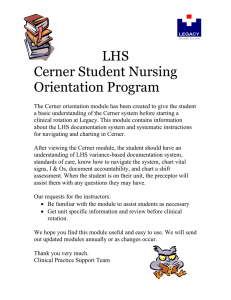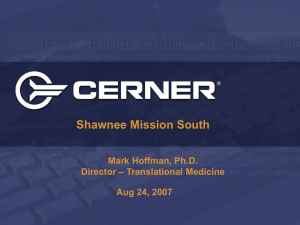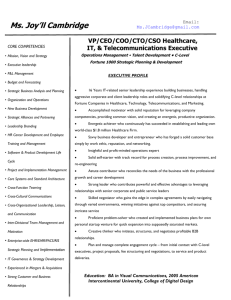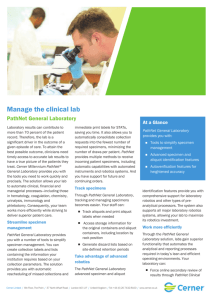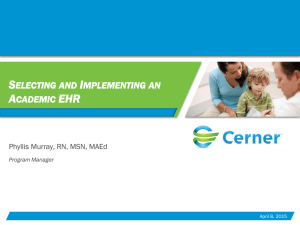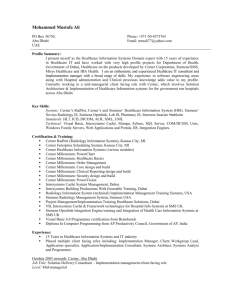Interview questions for Group A project
advertisement
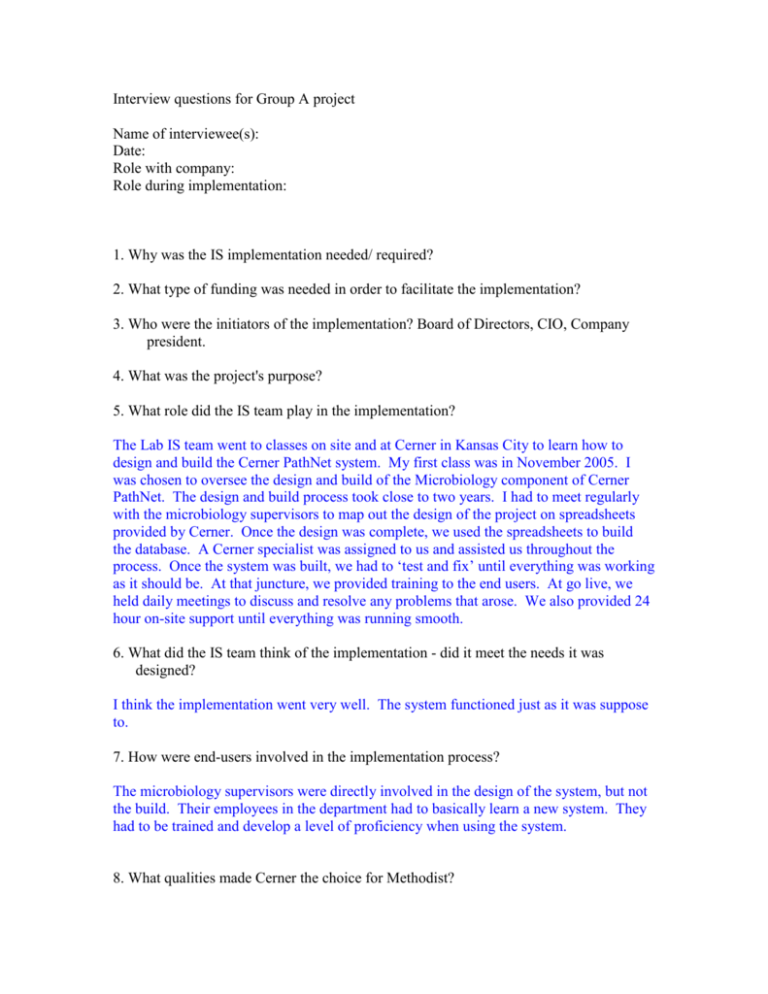
Interview questions for Group A project Name of interviewee(s): Date: Role with company: Role during implementation: 1. Why was the IS implementation needed/ required? 2. What type of funding was needed in order to facilitate the implementation? 3. Who were the initiators of the implementation? Board of Directors, CIO, Company president. 4. What was the project's purpose? 5. What role did the IS team play in the implementation? The Lab IS team went to classes on site and at Cerner in Kansas City to learn how to design and build the Cerner PathNet system. My first class was in November 2005. I was chosen to oversee the design and build of the Microbiology component of Cerner PathNet. The design and build process took close to two years. I had to meet regularly with the microbiology supervisors to map out the design of the project on spreadsheets provided by Cerner. Once the design was complete, we used the spreadsheets to build the database. A Cerner specialist was assigned to us and assisted us throughout the process. Once the system was built, we had to ‘test and fix’ until everything was working as it should be. At that juncture, we provided training to the end users. At go live, we held daily meetings to discuss and resolve any problems that arose. We also provided 24 hour on-site support until everything was running smooth. 6. What did the IS team think of the implementation - did it meet the needs it was designed? I think the implementation went very well. The system functioned just as it was suppose to. 7. How were end-users involved in the implementation process? The microbiology supervisors were directly involved in the design of the system, but not the build. Their employees in the department had to basically learn a new system. They had to be trained and develop a level of proficiency when using the system. 8. What qualities made Cerner the choice for Methodist? 9. Was there a contingency plan in place if key members of the IS team were to leave employment during implementation? This actually happened. The manager of our department retired before any component of PathNet (except AP which was already in place) went live. He was replaced with a member of the LAB IS team, who was replaced by an individual that was very knowledgeable with our system. 10. Describe your experience with Cerner innovation. 11. Explain how your organization uses Cerner. Diagnostic/ Business (accounting, purchasing, HR, finance, marketing) that made it appealing over other systems such as Epic, Mysis, etc. 12. Discuss your successes with Cerner use and the reasons behind the success. The whole project was a success. I believe one of the main reasons it was a success is because the people who were behind it. We had dedicated folks that put a lot of time and effort into the project to make it happen. 13. Describe your failures with Cerner use and the reasons behind the failures. I wouldn’t say it was a failure, but one of the frustrations of the process was scheduling meetings with the micro supervisors. They had to juggle their workload and deal with staffing shortages during the design process. We would have meetings scheduled and they would get cancelled the day of because someone would call in sick. It might be another week before they would be available to meet again. Also, Cerner had what I consider to be a high turnover rate with their specialists. In the two years we designed and built the micro component, we were assigned four different specialists. 14. Explain the process of the Cerner implementation in your organization? What was the planning cycle (pre, during, and post) time requirements? I’m not sure who set the go-live date for Micro, it was just given to me. From that juncture, I created my own timeline specific to micro that detailed the blocks of time allotted to the tasks we had to accomplish. 15. Can you tell about past implementation successes?
